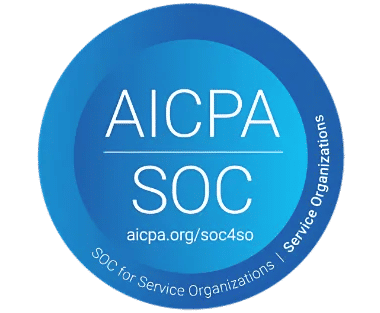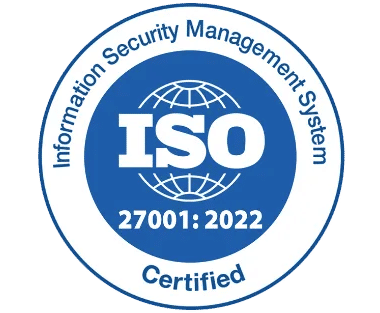Corporate Card Management: Definition Benefits, Usage

What do you mean by Corporate Card Management?
Corporate card management involves overseeing how company credit cards are used within a business. It includes handling various tasks like issuing cards, monitoring usage, ensuring compliance with company policies, generating reports, and reconciling statements. The goal is to ensure responsible spending, streamline financial tracking, and maintain control over company expenses. It encompasses the organized management of every element connected to corporate cards, including:
- Oversight
- Adherence
- Reporting
- Balancing
The main objectives of managing company credit cards are to promote responsible use, follow company guidelines, improve cash flow, and track expenses accurately. Key elements of corporate card management include:
- Policy Creation
Establish clear rules for card usage, spending limits, allowed expenses, and reporting. Make sure all employees handling cards understand these guidelines.
- Issuance and Authorization
Assign cards based on employee roles and needs. Ensure all necessary approvals are in place, and set appropriate spending limits.
- Tracking and Reporting
Employees should log and report credit card expenses, using apps or a simple process to categorize spending and submit receipts.
- Reconciliation and Payment
Match credit card statements with financial records to ensure accuracy and pay bills on time to avoid fees.
- Analysis and Reporting
Review spending patterns to gain insights into costs and vendor relationships, helping identify areas to optimize spending.
Benefits of Corporate Card Managemen
- Enhanced Control: Corporate card management gives organizations the ability to monitor and control employee spending in real time. This prevents unauthorized or excessive purchases and helps businesses stay within budget. With clear policies in place, businesses can regulate how and when cards are used, ensuring that spending aligns with organizational goals.
- Improved Compliance: By establishing clear usage policies, businesses can ensure that all transactions are in line with company guidelines. Corporate card management tools help employees understand approved spending categories, reducing the risk of policy violations. This level of consistency and transparency promotes trust and accountability within the organization.
- Simplified Reporting: Corporate card management streamlines the process of generating financial reports by consolidating spending data in one place. It eliminates the need for manual tracking, saving time and reducing errors. With automated reporting features, businesses can access detailed insights into expenses and trends, making it easier to analyse company finances and make informed decisions.
- Faster Reconciliation: Reconciliation is much faster when using corporate card management systems that automatically match transactions with internal records. It reduces the time spent cross-checking expenses, allowing finance teams to focus on more strategic tasks. By simplifying the process, businesses can avoid delays in payment and prevent potential issues with vendors.
- Real-Time Visibility: Corporate card management provides immediate access to spending data, allowing businesses to monitor expenses in real time. This visibility enables proactive decision-making, ensuring that financial resources are being used efficiently. Business leaders can quickly identify trends, address concerns, and adjust spending as needed.
- Increased Efficiency: By automating processes like approval workflows and expense categorization, corporate card management enhances operational efficiency. It reduces the administrative burden on finance teams, enabling them to focus on higher-value activities. The automation also minimizes the risk of errors and delays that can arise from manual processes.
- Reduced Errors: With automated tracking and reconciliation, corporate card management significantly reduces the chances of human error. This accuracy is crucial for maintaining financial integrity and ensuring that reports reflect true spending. The elimination of manual entry also minimizes discrepancies and the need for time-consuming corrections.
- Improved Cash Flow: Corporate card management helps businesses optimize their cash flow by offering real-time insights into expenditures and helping to avoid late fees or interest charges. By streamlining payment processes and setting clear spending limits, businesses can better manage their finances and avoid unnecessary costs. Timely reconciliations also support more accurate forecasting.
- Better Accountability: Employees become more accountable for their spending when corporate card usage is closely monitored. Clear policies and automated tracking systems make it easier to identify any discrepancies or unauthorized transactions. This promotes a culture of responsible financial behavior across the organization, with employees understanding the importance of adhering to budget guidelines.
- Cost Savings: By tracking spending patterns and identifying areas of excess, businesses can uncover opportunities to reduce costs. Corporate card management tools provide insights into spending trends and vendor relationships, helping organizations negotiate better deals. Identifying inefficiencies or unnecessary expenses can lead to significant savings over time.
Usage of Corporate Cards
- Travel Expenses
Corporate cards are commonly used for business-related travel. This includes booking flights, hotels, taxis, car rentals, and meals. Using a corporate card streamlines payments and keeps expenses in one place, making it easier to track costs. Employees can focus on their work while the company handles the logistics of travel bookings. Additionally, some corporate cards offer travel insurance or rewards for frequent travellers, which benefits both the employee and the company.
- Office Supplies
Corporate cards simplify the purchasing process for office supplies like stationery, printer cartridges, computers, and furniture. Employees can buy what’s needed without waiting for approval from higher management, as long as it’s within the guidelines. It speeds up the procurement process and ensures that the office remains stocked with the essentials. Using a card also helps track spending and prevents unnecessary purchases. Moreover, companies can benefit from supplier discounts and loyalty programs.
- Client Entertainment
Entertaining clients is a common business practice, and corporate cards can be used to cover related costs, such as dining out, entertainment, and events. Using the corporate card for client entertainment ensures that the expenses are accurately documented and fall within the company’s budget. It simplifies reimbursement processes and helps maintain clear records for tax purposes. Corporate cards can also offer rewards or cashback, turning entertainment costs into benefits for the company. Maintaining a clear policy on client entertainment helps avoid misuse of funds.
- Conferences and Events
Business conferences, seminars, and networking events are vital for growth and development, and corporate cards are ideal for covering these expenses. This includes registration fees, accommodation, transportation, and meals during the event. By using corporate cards, businesses ensure that all expenses are easily tracked and accounted for in one place. Employees do not need to wait for reimbursements, and companies can manage multiple event-related charges simultaneously. Some corporate cards offer benefits like priority registration or discounts for specific conferences and events.
- Shipping and Freight
Shipping products, samples, or business-related materials requires quick and reliable payments. Corporate cards are used to cover freight, courier, or logistics costs. This includes shipping items to clients, purchasing inventory from suppliers, or sending marketing materials. Having a dedicated card for these transactions makes it easier to track shipping costs, handle urgent shipments, and maintain consistent vendor relationships. Businesses may also benefit from special shipping rates or loyalty programs offered by courier services.
- Marketing and Advertising
Corporate cards are often used to pay for marketing efforts, such as digital advertising campaigns (Google Ads, social media ads), printing costs for brochures or flyers, and sponsorships. They allow businesses to quickly fund campaigns without going through lengthy approval processes. Tracking these expenses via the corporate card simplifies budgeting and financial planning for marketing. It also ensures that the business stays on top of payment schedules, preventing lapses in ongoing campaigns. Additionally, companies can earn rewards from advertising partners or services.
- Employee Reimbursements
In cases where employees have made business-related purchases out of pocket, the corporate card can be used to cover those expenses directly, streamlining reimbursement. For example, an employee may purchase office supplies or pay for client lunch. Instead of processing individual reimbursements, the company can directly pay with a corporate card and ensure proper categorization for tax or accounting purposes. This reduces administrative burden and increases transparency. Having a single card for employee expenses also ensures compliance with the company’s spending policies.
- Contractor Payments
When working with contractors or freelancers, corporate cards can be used to pay for services rendered. Whether for consulting, design work, or temporary projects, using the corporate card for contractor payments simplifies invoicing and approval processes. It helps manage cash flow since payments can be processed immediately. Additionally, this ensures that contractors are paid on time, fostering better business relationships. The company also maintains a clear record of all payments, reducing potential conflicts over billing or financial tracking.
- Subscription Fees
Businesses often subscribe to industry-specific magazines, reports, research databases, and other valuable services that help keep them competitive. Corporate cards are used to cover these recurring subscription fees, ensuring there are no interruptions to services. This process is streamlined through automatic renewals, keeping important subscriptions active without requiring manual intervention. By using corporate cards, businesses can keep track of all recurring expenses, identify which services are being underutilized, and easily adjust their subscriptions. Moreover, some companies may receive discounts for paying annually instead of monthly.
20 Effective Strategies for Managing Corporate Cards Efficiently
- Establish Clear Policies
Create a comprehensive corporate card policy that outlines who can use the cards, what purchases are allowed, and any restrictions. Make sure employees understand the rules to ensure consistency and compliance. Provide clear guidelines on how to submit receipts and reports. Regularly update the policy as business needs or financial regulations change.
- Define Spending Limits
Assign specific spending limits to each cardholder based on their job function and responsibilities. This helps control expenses and ensures no one exceeds their budget. Spending limits also make it easier to monitor compliance with financial guidelines. Review and adjust these limits periodically as roles or business needs evolve.
- Regularly Review Transactions
Frequent review of corporate card transactions helps identify errors, unauthorized purchases, or potential fraud. Implement a process for managers to approve or question expenditures promptly. This ensures alignment with company policies and prevents issues from escalating. Regular reviews also help catch discrepancies before monthly statements arrive.
- Use Dedicated Software
Adopt expense management software that integrates with corporate cards for automated expense tracking and reporting. This streamlines processes like approval workflows and compliance checks. The software can provide real-time insights into spending patterns, helping managers make informed decisions. It also reduces manual data entry and improves accuracy.
- Set Approval Workflows
Design an approval system where higher management or designated personnel review significant or out-of-policy transactions. This acts as a safeguard against unauthorized spending. The approval process ensures that large expenses align with company budgets and objectives. It also improves transparency and accountability in financial management
- Monitor for Fraud
Leverage fraud detection tools that many card issuers offer to monitor transactions in real-time. Set up alerts for unusual spending patterns or transactions that fall outside approved categories. Regularly cross-check your company’s credit card statements with internal records to spot discrepancies. Proactively investigating suspicious activity can help prevent financial losses.
- Implement Prepaid Cards
Use prepaid corporate cards for employees or departments with strict spending caps. Prepaid cards ensure that employees cannot exceed the set limit, offering a more controlled spending environment. They are ideal for temporary projects or one-off purchases, reducing the risk of budget overruns. The company can load the exact amount needed onto the cards, simplifying fund management.
- Track Receipts Digitally
Encourage employees to take photos of receipts and upload them directly to your expense management system. This eliminates the need for paper receipts and reduces the risk of losing them. Digital records are easier to store, search, and retrieve for audits or reviews. It also speeds up the expense reporting process and improves accuracy.
- Reconcile Statements Promptly
Ensure that corporate card statements are reconciled with financial records shortly after receiving them. This reduces errors and ensures that payments are accurate. Prompt reconciliation prevents the accumulation of discrepancies that may be harder to address later. It also ensures that the business stays on top of its cash flow and avoids late fees.
- Maintain Employee Accountability
Hold employees accountable by requiring them to submit regular expense reports and receipts for corporate card use. Clearly communicate the importance of adhering to company policies to avoid misuse. Non-compliance can lead to corrective actions, fostering a culture of financial responsibility. Regular follow-ups on spending ensure that employees stay aligned with business guidelines.
- Use Cards for Specific Expenses
Restrict corporate card usage to designated categories, like travel or office supplies, to avoid uncontrolled spending. This simplifies tracking and helps ensure that employees are using cards for business-related purposes only. By categorizing spending, you can better control budgets for different departments. Establishing clear guidelines ensures that all spending aligns with business priorities.
- Audit Regularly
Conduct audits of corporate card transactions at regular intervals to ensure compliance with the company’s financial policies. Auditing helps spot any discrepancies or misuse of funds early. It also ensures that the company’s financial records remain accurate and up to date. Regular audits promote transparency and discipline among employees handling corporate cards.
- Use Cards for Recurring Expenses
Utilize corporate cards to handle subscription-based services or recurring monthly payments, such as software licenses or office cleaning. This makes it easier to manage payments, track expenses, and ensure services are continuously renewed. Corporate cards help you avoid lapses in service by automating regular payments. By setting up recurring payments, you reduce administrative workload and streamline budgeting.
- Training and Awareness
Conduct training sessions for employees on how to use corporate cards responsibly. Emphasize the importance of following company policies, maintaining proper records, and staying within budget. Regular reminders and updates about the policies can reduce misuse. Training ensures employees understand what is expected and how to stay compliant with company standards.
- Encourage Timely Reporting
Establish a clear timeline for submitting corporate card expense reports, encouraging employees to report their expenses promptly. Timely reporting ensures that financial records are up-to-date and enables quicker decision-making. It also helps avoid delays in processing reimbursements or approving new purchases. Setting deadlines fosters discipline and helps the company maintain accurate financial tracking.
- Utilize Virtual Cards
For one-time or online purchases, use virtual corporate cards to limit the exposure to fraud and unauthorized transactions. Virtual cards provide a secure, unique number for each transaction, making them less vulnerable to fraud. They also allow for greater flexibility and control over spending. Virtual cards are especially useful for small-scale, one-off transactions that don’t require a physical card.
- Establish Clear Reimbursement Procedures
Create a straightforward process for employees to be reimbursed for any personal expenses incurred with corporate cards. This process should clearly define what qualifies for reimbursement and the documentation required. By keeping reimbursement procedures clear and efficient, employees are more likely to comply. A well-defined process ensures transparency and avoids confusion.
- Track Cardholder Performance
Monitor individual cardholder spending to identify any patterns that may suggest non-compliance or misuse. Reviewing performance data helps ensure that cardholders are adhering to guidelines and staying within their limits. This also helps identify any areas where additional training or adjustments to spending limits might be necessary. Tracking performance reinforces accountability across the organization.
- Leverage Card Rewards Programs
Take advantage of any rewards, cashback, or loyalty programs offered by the corporate card provider. Rewards can be used to offset business expenses, helping lower overall costs. Track which purchases qualify for rewards and optimize spending to maximize benefits. Ensure that employees are aware of these programs and incentivize them to use the card efficiently.
- Set Up Alerts
Configure transaction alerts for corporate cards to notify you about large or unusual purchases in real-time. Alerts can be set up to notify managers or designated personnel whenever a transaction exceeds a certain threshold. These alerts offer an additional layer of oversight, helping to prevent unauthorized spending. Immediate notifications allow the business to respond quickly to any potential issues.
Conclusion:
Corporate Card Management works perfectly with Expense Tracker 365 with just $49. You can easily track spending in real time, automate reports, and ensure everything aligns with company policies.
The platform also helps with quick reconciliation and improves visibility into financial transactions. This combination makes managing corporate cards much easier, ensuring businesses stay on top of spending and maintain financial control with less effort
Frequently Asked Questions
1. What is corporate card management?
Corporate card management refers to the process of overseeing and controlling the use of company-issued credit or debit cards by employees. It involves setting policies on usage, managing spending limits, ensuring compliance with financial guidelines, tracking transactions, and reconciling expenses. The goal is to ensure responsible spending while providing employees with a convenient way to pay for business-related expenses.
2. What is corporate expense management?
Corporate expense management involves overseeing, tracking, and controlling all business-related expenses incurred by employees. It includes managing things like travel costs, office supplies, and client entertainment. The process ensures that expenses are within budget, properly documented, and in compliance with company policies. It often involves using expense management software for easier tracking, approval workflows, and reporting.
3. What does corporate card mean?
A corporate card is a credit or debit card issued by a company to its employees for business-related expenses. These cards are used to pay for things like travel, office supplies, meals, and other work-related purchases. Corporate cards are typically linked to the company’s account, with pre-set spending limits and policies to ensure they are used responsibly and within budget.
4. What is a card management system?
A card management system (CMS) is a software solution that helps businesses manage their corporate cards. It allows companies to issue, monitor, and control card usage, set spending limits, track transactions, and reconcile expenses. A CMS also helps streamline reporting, enhance security, and ensure compliance with corporate policies. It provides businesses with real-time insights into cardholder spending, making it easier to manage and optimize financial resources.
5.How can real-time monitoring and alerts enhance security in corporate card management?
Real-time monitoring helps detect unauthorized transactions instantly, allowing businesses to take immediate action. Alerts notify managers and employees of unusual spending patterns, duplicate charges, or policy violations. This proactive approach minimizes financial risks and strengthens security.
What are the key factors to consider when setting spending limits for corporate cards?
Key factors include the employee’s role, department budget, historical spending patterns, and company policies. Businesses should also assess the nature of expenses (e.g., travel, client entertainment) and set different limits based on necessity. Adjustable limits based on real-time monitoring can help prevent overspending.










_svxLrd-8yH.png)

_2VYSFUTN5m.png)

_JiluXJRGNl.svg)

_2djTKNocf.png)





_Rapo0hRMBy.png)










